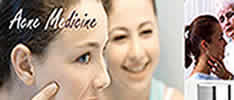Patients with active tuberculosis are more likely to be vitamin D deficient than the rest of the population. New research, presented at the annual Society for Endocrinology BES meeting in Harrogate, shows that the majority of patients with tuberculosis (TB) have low levels of vitamin D, leading to the possibility that vitamin D supplementation could reinforce current treatments or be used as a preventative measure against tuberculosis.
Researchers at the Central Middlesex Hospital in London, led by Dr Vassiliki Bravis, examined the prevalence of vitamin D deficiency in an ethnically diverse population in London who had active tuberculosis. Out of 158 patients in the study, only 11 (7%) had adequate vitamin D levels. Additionally, patients' vitamin D levels did not vary seasonally as expected, but remained constant throughout the year. It is currently unclear whether these findings represent a contributory factor to TB infection, with people with low vitamin D levels being more likely to contract the disease, or whether tuberculosis infection makes the body process vitamin D in an abnormal way, leading to patients becoming deficient. More research is now needed to establish whether vitamin D could provide a new line of treatment or preventative medicine against tuberculosis.
Vitamin D is manufactured by the skin after exposure to UV rays from sunlight. If you live in the UK, your vitamin D levels should fluctuate seasonally with the amount of sunlight you are exposed to, being higher in the summer and lower in the winter. Approximately 14.5% of the UK population is vitamin D deficient. However, vitamin D deficiency is more common amongst the Asian and African population, in whom TB infection is also more prevalent. Previous work indicates that vitamin D may help ward off tuberculosis as it mediates a key immune response against the bacterium that causes TB. Tuberculosis is a major global health problem, which causes over 2 million deaths every year.
Researcher Dr Vassiliki Bravis said:
"Previous research has shown that high levels of vitamin D can help inhibit tuberculosis infection. Our work shows that, within a London population, the majority of TB patients we treat are vitamin D deficient. Currently, we don't know whether this vitamin D deficiency is a contributing factor towards them developing the disease or whether tuberculosis infection makes the body process vitamin D in an abnormal way, meaning that sufferers subsequently become vitamin D deficient. Looking towards the future, we now need to carry out trials to establish whether vitamin D supplementation could be used effectively to either prevent or help treat tuberculosis infection."
After Reviewing nearly 70 randomized studies on the effects of vitamin or antioxidant supplements, scientists in Denmark concluded there is no evidence that they prolong life, and even found evidence that some of them, such as beta-carotene, Vitamin A and Vitamin E, may actually shorten it.
The review is the work of Dr Christian Gluud, director of medical science, associate professor and department head of the Copenhagen Trial Unit at the Centre for Clinical Intervention Research and Copenhagen University Hospital in Denmark, and colleagues. It is published in the latest issue of the The Cochrane Library.
The reviewers warned that healthy people who take antioxidant supplements such as Vitamin A and E to ward off diseases like cancer could be disrupting their body's natural defences and increasing their risk of early death by as much as 16 per cent.
While fruit and vegetables are the main source of antioxidants in the diet, most people do not eat enough to meet their daily requirement. However, it is not clear if taking supplements has the same effect as a healthy diet, or can be harmful, even.
Antioxidants are marketed as a means to overcome the damaging effect of oxygen on cells by neutralizing the effect of free radicals. The reviewers said this is where they could be interfering with the body's natural defence processes.
Gluud said:
"The harmful effects of antioxidant supplements are not confined to vitamin A."
"Our analyses also demonstrate rather convincingly that beta-carotene and Vitamin E lead to increased mortality compared to placebo," he added.
Gluud and colleagues carried out a meta-analysis (a systematic way of statistically analysing data pooled from a number of studies that meet stated inclusion criteria) of 67 randomized studies covering over 200,000 participants.
They included studies on healthy adults and also studies where adults had been diagnosed with certain specific, but stable, conditions. They excluded studies on children, pregnant women, and people with acute or malignant diseases, and studies where the supplements were being used specifically to replace known nutrient deficiencies.
The reviewers found that Vitamin A supplements increased the risk of death in healthy participants by 16 per cent, while beta-carotene and Vitamin E were associated with a 7 per cent and a 4 per cent increased risk of death respectively.
The reviewers found no evidence that Vitamin C caused harm, but they equally found no evidence that it helps prevent disease.
Review team leader, Goran Bjelakovic, said in a statement quoted by the Telegraph that:
"We could find no evidence to support taking antioxidant supplements to reduce the risk of dying earlier in healthy people or patients with various diseases."
"If anything, people in trial groups given the antioxidants beta-carotene, vitamin A, and vitamin E showed increased rates of mortality," he added.
The reviewers made a "plea for urgent political action" to bring in stiffer regulation of antioxidant supplements.
Gluud said, in no uncertain terms that:
"We should request that the regulatory authorities dare to regulate the industry without being financially dependent on the very same industry."
But the reaction of other scientists and industry experts has been mixed.
Dr Jeffrey Blumberg, director of the Antioxidants Research Laboratory at the US Department of Agriculture Human Nutrition Research Center on Aging and a professor with the Friedman School of Nutrition Science and Policy at Tufts University in Medford/Somerville, Massachusetts, who was not involved in the review, told Health Behavior News Service that:
"I could find nowhere in this report any review of regulatory practices and effectiveness or the evaluation of public health policies, procedures or perspectives."
And a supplement industry spokesman, Dr Andrew Shao, vice president of scientific and regulatory affairs for the Council for Responsible Nutrition, a supplement industry trade association in Washington DC, questioned the way that studies were selected for the review. For example, the review only included studies where someone died.
"Four hundred [and] five studies which showed no deaths were excluded from the meta-analysis, which if included, clearly would have altered the outcome of the meta-analysis," said Shao, who maintained that antioxidant supplements were safe when part of a healthy diet.
Gluud said their methods were robust, because most of the trials in which no deaths occurred were not "proper preventative trials", he said, according to Health Behavior News.
Blumberg also said he was concerned about using criteria like "all-cause mortality" in research on antioxidants, because that included deaths from anything, for example cancer or a train wreck.
However, a representative of the British Dietetic Association, Catherine Collins, told the Telegraph that she found the study "deeply worrying and shows that there should be more regulation for vitamins and minerals".
"The public can buy vitamins as easily as sweets. They should be treated in the same way as paracetamol [acetaminophen] with maximum limits on the dosage," said Collins.
The Cochrane Library is part of The Cochrane Collaboration, a global organization that evaluates medical research. The Library specializes in systematic reviews that form evidence-based conclusions after considering available published trials on medical applications.
"Antioxidant supplements for prevention of mortality in healthy participants and patients with various diseases (Review)".
Bjelakovic G, Nikolova D, Gluud LL, Simonetti RG, Gluud C.
Cochrane Database of Systematic Reviews 2008, Issue 2.
Available online, 16 April 2008.


